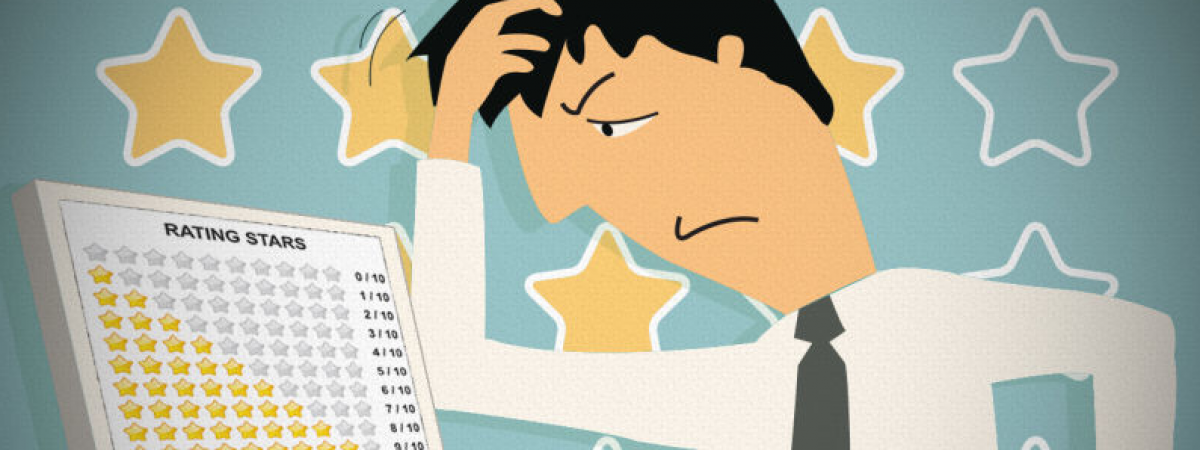When Yelp and Google Delete Your Reviews – What You Need to Know
As a small business owner, you understand how important Google and Yelp reviews are for improving your search rankings and generating new business. You work hard and diligently to cultivate reviews. You have a consistent review management strategy and your staff is trained to go above and beyond in order to ensure your customers’ satisfaction. You are thrilled when all your hard work has paid off you receive that 5- star feedback. Three weeks later, you notice that that great review – and perhaps several others – have disappeared. Unless your customer has deleted it, it has most likely been removed by Google or Yelp
This is a common complaint from thousands of frustrated small business owners using Yelp and Google, who are wondering why some of their reviews inexplicably disappear.
In some cases, it could be a glitch or a bug (Yes, it happens even with huge companies like Google and Yelp). But the most likely reason is that they have been taken off by the review site search engines themselves.
Are Google and Yelp allowed to do that? Yes – but don’t take it personally. Google and Yelp are not out to get you. There are some conspiracy theories out there which say the Google especially will remove the reviews of people who don’t use Adwords, or the reviews of competing businesses; however, there is no real indication that this is true. The more plausible reason is Yelp and Google’s spam filters
You see, these platforms have spam filters for online reviews that filter content according to certain “triggers”. If any of these triggers are found in your review content, they will be considered spam and the review will be deleted because it has violated their review content guidelines. The following are a few examples to be aware of:
There is a duplicate review on another/other sites. Some overenthusiastic customers might be so thrilled about your business and the service they received that they will write not one but two or more reviews on separate sites. However, instead of writing an original review on each site, they will post a duplicate of the one they gave you on Google, Yelp, and Facebook. Google and Yelp will often remove reviews that are duplicated.
The review contains a URL. Any review containing a URL will be flagged as spam and deleted, even if that URL is relevant to a review. Let’s say you’re a kitchen designer and a happy client posts a link to photos of the kitchen you designed for them; there’s nothing harmful in that. If anything, it’s great promotion for your business. Unfortunately, the spam filter is programmed to flag any URL as spam and that review will likely be deleted.
The same applies to phone numbers in a review, which is a big trigger for the spam filters.
All of your reviews are on one site only. Ideally, your local business reviews should be dispersed over several different sites. Google and Yelp look for “natural” reviews, meaning that the natural thing is for customers to be reviewing your business on several different sites. If all of your reviews are only on Yelp or Google, they will appear unnatural and guided and again, classified as spam.
The IP address of the of the review is the same as that of your business; meaning that it was written on your business premises. This is a big no-no for Google and Yelp because it could mean that the review was either written by someone in your business or that a client was “coached” to write it. Google and Yelp do not regard these types of reviews as legitimate.
A review is not clean, meaning it contains foul or inappropriate language. This one could actually be in your favor as these types of reviews will probably be bad ones. This is one instance where you just might be grateful for those Google and Yelp spam filters!
A high number of reviews in a short space of time. There may be nothing fishy about this at all. You might simply have had a great week or month of business where a large number of customers all posted reviews. Again, Yelp and Google do not recognize this and will flag these reviews as spam because to their algorithms it appears “unnatural”.
Reviews are not written in the first person. A review must relate the writer’s own experience with your business and not written on behalf of their friend, colleague or mother-in-law. Reviews written in the third person will usually be caught and deleted.
There are many more reasons why your reviews could be removed by Google or Yelp but I think you get the general picture here. When you are asking customers to give you reviews, you may want to give them a few guidelines about what to avoid in order to minimize review removal. Hopefully, we may see improvement in the future as Yelp and Google continue to make their spam filters more intelligent. Meanwhile, this is something small business owners will just have to live with. Unless you are effectively coaching your customers for reviews or your staff is writing them or some other wrongdoing, there’s no need to worry; it’s just part of the online review world.

